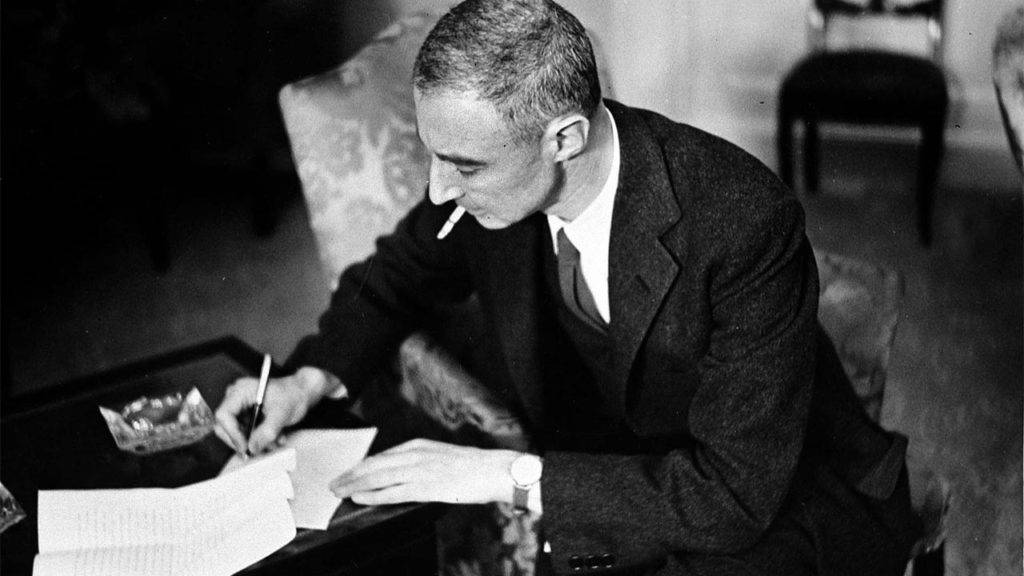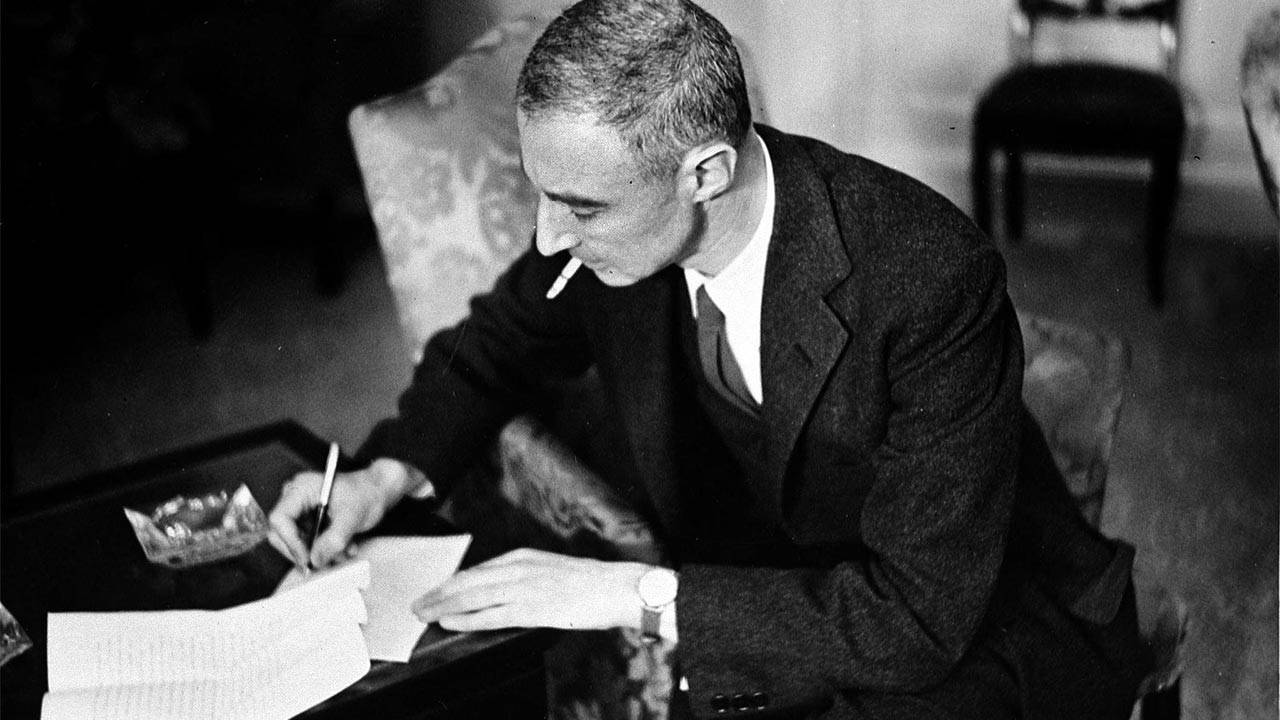Who is the father of Atom Bomb? The development of the atomic bomb during World War II was one of the most significant scientific and technological achievements of the 20th century. At the center of this monumental effort was J. Robert Oppenheimer, a brilliant physicist who played a pivotal role in the Manhattan Project, a top-secret government initiative that resulted in the first atomic bomb.
Oppenheimer’s leadership and scientific expertise were critical to the project’s success, but his legacy is also marked by the ethical dilemmas he faced and the profound impact of nuclear weapons on world history. In this article, we will explore the life and legacy of J. Robert Oppenheimer, the Manhattan Project, and the impact of nuclear weapons on global conflict.

Table: Key Figures and Dates of the Manhattan Project
| Key Figure | Role | Date |
|---|---|---|
| Enrico Fermi | Conducted first controlled nuclear chain reaction | 1939 |
| J. Robert Oppenheimer | Appointed leader of the Manhattan Project | 1942 |
| July 16, 1945 | First atomic bomb test in Alamogordo, New Mexico | 1945 |
| August 6, 1945 | Atomic bomb dropped on Hiroshima, Japan | 1945 |
| August 9, 1945 | Atomic bomb dropped on Nagasaki, Japan | 1945 |
| September 2, 1945 | Japan surrenders, ending World War II | 1945 |
Who is the Father of the Atom Bomb? Exploring the Life and Legacy of J. Robert Oppenheimer
J. Robert Oppenheimer, also known as the “father of the atomic bomb,” was a brilliant physicist who played a pivotal role in the development of nuclear weapons during World War II. His leadership of the Manhattan Project, a top-secret government initiative that resulted in the first atomic bomb, made him one of the most controversial and influential figures of the 20th century.
J. Robert Oppenheimer Wiki
J. Robert Oppenheimer was born in New York City in 1904, the son of a wealthy Jewish textile importer. From an early age, he showed a remarkable aptitude for science and mathematics, and went on to study physics at Harvard University and the University of Cambridge.
During the 1930s, Oppenheimer became increasingly interested in nuclear physics and was appointed to the faculty of the University of California, Berkeley. He quickly established himself as one of the leading theoretical physicists of his generation, and in 1942 was appointed to lead the top-secret Manhattan Project, which aimed to develop the first atomic bomb.
Oppenheimer’s leadership of the Manhattan Project was marked by both scientific brilliance and ethical dilemmas. He oversaw the work of thousands of scientists, engineers, and technicians who labored tirelessly to produce the first atomic bomb. But he also grappled with the moral implications of his work and the devastating impact that the bomb would have on human life.
After the war, Oppenheimer became an outspoken critic of nuclear weapons and a proponent of international cooperation and arms control. He was a key advisor to the US government on nuclear policy and served as the director of the Institute for Advanced Study in Princeton, New Jersey, until his death in 1967.
What is the Manhattan Project?
The Manhattan Project was a top-secret government initiative during World War II that aimed to develop the first atomic bomb. It was named after the Manhattan Engineer District of the US Army Corps of Engineers, which oversaw the project.
The project began in 1939, after a group of physicists led by Enrico Fermi achieved the first controlled nuclear chain reaction in a laboratory. This breakthrough paved the way for the development of nuclear weapons and sparked a race between the US and Germany to create the first atomic bomb.
The Manhattan Project was overseen by J. Robert Oppenheimer and employed thousands of scientists, engineers, and technicians across the US. The project culminated in the successful test of the first atomic bomb in July 1945, and the subsequent bombing of Hiroshima and Nagasaki in Japan.
The Manhattan Project is widely regarded as one of the most significant scientific and technological achievements of the 20th century, but it also had profound ethical and political implications. The development of nuclear weapons ushered in a new era of global conflict and sparked a decades-long arms race between the US and the Soviet Union.
FAQs:
- What were the ethical implications of the Manhattan Project?
The development of nuclear weapons ushered in a new era of global conflict and sparked a decades-long arms race between the US and the Soviet Union. Many scientists involved in the project grappled with the moral implications of their work and became advocates for international cooperation and arms control.
- How did the Manhattan Project impact the outcome of World War II?
The Manhattan Project resulted in the development of the first atomic bomb, which was dropped on Hiroshima and Nagasaki in Japan. The bombings had a profound impact on the outcome of the war and led to Japan’s surrender, ending the war in the Pacific.
- Was the Manhattan Project a success?
From a scientific and technological standpoint, the Manhattan Project was a tremendous success. It resulted in the development of the first atomic bomb, which played a significant role in ending World War II. However, the project also had profound ethical and political implications that continue to be debated to this day.
- How did Oppenheimer’s views on nuclear weapons change after the war?
After the war, Oppenheimer became an outspoken critic of nuclear weapons and a proponent of international cooperation and arms control. He played a key role in shaping US nuclear policy and was a vocal opponent of the development of the hydrogen bomb.
- How did the Manhattan Project impact the world?
The development of nuclear weapons during the Manhattan Project had a profound impact on world history, ushering in a new era of global conflict and sparking a decades-long arms race between the US and the Soviet Union. The threat of nuclear war continues to be a major concern in the 21st century.






